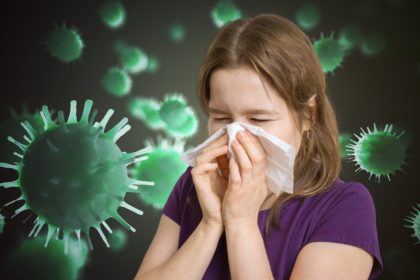With the spread of the coronavirus and flu, it’s important to keep the things we touch clean and sanitized, but what about our clothes and all the fabrics we touch? Did you know that the way you wash your clothes can actually make them dirtier? Here are some practical tips that’ll help clean your clothes, so they’re free of germs — and dirt.
Coronavirus Can Thrive on Clothes
If you’re coughing into your elbow, your clothes are a carrier of germs. According to Dr. James Robb, former professor of pathology at University of California San Diego, and one of the first virologists in the world at that time to study coronaviruses (in the 1970’s), the fabric on your clothes will contain infectious virus for up to a week or more. Anyone that touches your clothing and doesn’t wash their hands can pick up your germs. Same goes for someone that coughs or sneezes into their hand and touches your clothes.
The most recent recommendations are to:
1. Remove your clothes before entering your home, especially if you’ve been in a high contact area, then wash them right away. Keep a set of clean “indoor” clothes by the entrance to change into and wear inside your home.
2. Wash your jacket every 1-2 days.
Here’s another healthful tip to consider which is a custom taken from the Japanese…

3. Remove your shoes before entering your home. Shoes are carriers of germs — e.g., bacteria, viruses, and parasites. If you’ve walked in hospitals, on public sidewalks, parks, and restrooms, your shoes are bound to pick up the microbes that are lurking in these places. Microbes attach to the things they come in contact with.
NOTE: The Japanese also keep a special set of “bathroom” slippers by the restroom door. They change in/out of them for use in the bathroom only.
Tips to Sanitize Your Clothes
1. Wash New Clothes Before Wearing Them It’s a good practice in general to wash new clothes. First, you don’t know who has tried on the clothes or if they were worn and returned. Also, new fabric finishes contain formaldehyde, fragranced starches, and insecticides. Pre-soak them in one cup or more of baking soda before washing them to neutralize these potentially allergenic chemicals.
2. Know How Detergents Work Detergents work by loosening and binding to dirt, then lifting it up and out of clothes. Detergent and dirt become one unit. If the detergent isn’t completely rinsed out, neither is the dirt. Too much detergent = dirty, irritating clothes.
3. Don’t Crowd Be sure not to overload your washer. To clean, your detergent needs room to circulate through your clothes. Plus, you need plenty of water to carry the loosened dirt and oils away.
4. Don’t Add Too Much Detergent For a full-sized load, try using half the recommended amount of a favorite detergent. Detergent manufacturers often overestimate the amount that’s actually needed.
NOTE: Fragrance-free detergents are best as they don’t contain petrochemical perfumes which can aggravate allergies and irritate sensitive skin.

Try this Test…
Wash a load of clothes as it’s normally done. Now run this load through another full cycle except DON’T add any detergent — just wash it again in water. If suds are present, that means there’s detergent residue remaining on your clothes — and your clothes are clinging to dirt and germs. These residues can contribute to skin dryness and itchiness. It’s important to not irritate the skin as it breaks the protective barrier that protects foreign matter from entering your body.
5. Use Baking Soda and Vinegar Add 1/2 cup of baking soda to the detergent (less for smaller loads). The baking soda helps detergents work better by maintaining a neutral pH in your laundry water and deodorizes your clothes without synthetic fragrances that mask the odors. To remove the detergent’s chemical alkaline residue, add 1/2 cup of white distilled vinegar (which is acidic) to the final rinse cycle. Vinegar is naturally antibacterial, and it softens and freshens clothes without chemical additives.
6. Consider Hard and Soft Water Soft water cleans fabrics better than hard water. Minerals, such as calcium and magnesium, make water hard and can leave mineral deposits on your clothes causing them to also wear faster and fade. Detergent requirements may vary based on mineral content in the water — slightly more detergent may be necessary for very hard water and less for very soft water. You’ll have to experiment.
7. Wash Your Washer Your washer can harbor soap, mold, and bacteria. Avoid contaminating your clothes by pouring one cup of vinegar directly into the drum and run it on the hot wash cycle (at least 140 degrees Fahrenheit).

![]() Karen’s Fit Tip: Treat your clothes like your skin. Wash them frequently and rinse them well. They are a carrier of germs just like your body.
Karen’s Fit Tip: Treat your clothes like your skin. Wash them frequently and rinse them well. They are a carrier of germs just like your body.





